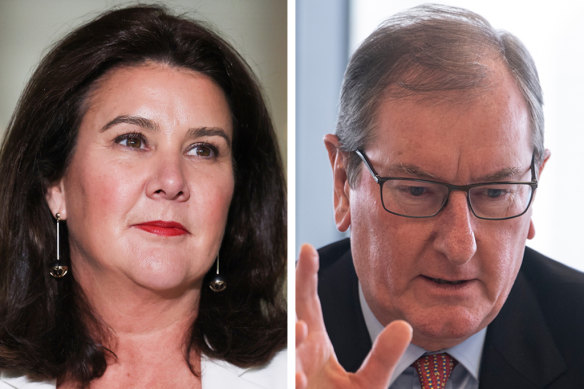Poilievre's Election Loss: What It Means For The Future Of The CPC

Table of Contents
The Causes of Poilievre's Electoral Setback
Poilievre's campaign, while energetic, ultimately fell short of securing victory. Several factors contributed to this outcome.
Policy Positions and Public Perception
Specific policy positions adopted by Poilievre and the CPC proved controversial and may have alienated potential voters.
- Controversial Stances: Poilievre's strong positions on issues like repealing carbon taxes and reducing the size of government resonated with a segment of the population but faced strong opposition from others. His emphasis on "freedom" was interpreted by some as anti-establishment and divisive.
- Negative Media Coverage: Certain policy proposals received negative media attention, framing them as potentially harmful to specific demographics or the Canadian economy. This narrative impacted public opinion.
- Public Opinion Polls: Consistent polling data showed a significant portion of the electorate remained unconvinced by Poilievre's platform, indicating a need for broader appeal. The "Poilievre's policies" narrative was not consistently positive in the public sphere.
Leadership Style and Communication
Poilievre's leadership style, characterized by a combative and populist approach, may not have connected effectively with all voter segments.
- Aggressive Rhetoric: While energizing his base, Poilievre's aggressive rhetoric towards opponents was criticized by some as divisive and unproductive.
- Lack of Nuance: His communication often lacked nuance, potentially alienating voters who sought more moderate or balanced perspectives. This was a critical element of the "Poilievre's leadership" challenge.
- Limited Outreach: Some critics argued that his campaign failed to adequately engage with voters beyond his core base, hindering broader support. Improving voter engagement will be crucial for future successes.
Internal Party Divisions and Factionalism
Underlying tensions and factionalism within the CPC might have hampered the campaign's effectiveness.
- Internal Conflicts: Reports of internal disagreements and conflicting agendas within the party potentially distracted from the core campaign message. This "CPC infighting" undermined unity.
- Competing Factions: The presence of competing factions within the CPC may have diluted resources and hampered a united front.
- Leadership Challenges: While Poilievre secured the leadership, questions regarding internal support and party unity lingered throughout the campaign, affecting morale and outreach.
The Road Ahead for the Conservative Party of Canada
The future of the CPC hinges on addressing the issues highlighted above and charting a new course.
Rebranding and Messaging
The CPC needs a strategic rebranding effort to appeal to a wider spectrum of Canadians.
- Modernized Messaging: The party needs to adopt a more inclusive and nuanced communication style to reach beyond its traditional base.
- Targeted Campaigns: Developing targeted campaigns addressing the concerns of specific demographic groups is crucial.
- Policy Adjustments: A review of existing policies is necessary to ensure they align with the evolving needs and values of Canadian society. A refined "Conservative platform" is vital for future success.
Leadership Succession and Future Candidates
The future of the CPC depends, in part, on the emergence of new leaders with diverse perspectives and effective communication skills.
- Potential Candidates: Several individuals within the CPC could potentially emerge as future leaders, each with different strengths and weaknesses. The "CPC leadership race" will be closely watched.
- Diverse Representation: Selecting a leader who reflects the diversity of Canadian society would be beneficial in reaching a broader electorate.
- Strategic Vision: The party needs a leader with a clear strategic vision for the future, capable of unifying the party and addressing the challenges identified.
Adapting to Changing Political Landscape
The CPC must adapt to a dynamic political landscape and evolving voter preferences.
- Understanding Trends: Closely analyzing current political trends and shifts in public opinion is crucial for effective strategy development.
- Demographic Shifts: Addressing the changing demographics of Canada and adapting policies accordingly is essential.
- Evolving Priorities: The party needs to demonstrate an understanding of the evolving priorities of Canadians, focusing on issues such as climate change, healthcare, and affordability.
Conclusion: The Future of the CPC Post-Poilievre's Election Loss
Poilievre's election loss underscores the need for significant changes within the CPC. Addressing internal divisions, refining its messaging, and adapting to the evolving political landscape are paramount for the party's future success. The "Poilievre's election loss" analysis reveals crucial lessons for the CPC's future direction. The party needs to critically examine its policies, improve communication strategies, and foster unity to effectively compete in future elections. We encourage further discussion and analysis of these critical issues to determine the best path forward for the CPC. Engage in the conversation; the future of the CPC depends on it.

Featured Posts
-
 Independent Office For Police Conduct Challenges Bbcs Chris Kaba Panorama
May 01, 2025
Independent Office For Police Conduct Challenges Bbcs Chris Kaba Panorama
May 01, 2025 -
 Dalla Actress And Educator Priscilla Pointer Passes Peacefully
May 01, 2025
Dalla Actress And Educator Priscilla Pointer Passes Peacefully
May 01, 2025 -
 Vaticano Rinvio Processo 8xmille Per Il Fratello Di Angelo Becciu
May 01, 2025
Vaticano Rinvio Processo 8xmille Per Il Fratello Di Angelo Becciu
May 01, 2025 -
 O Lempron Tzeims Sta 50 000 Pontoi Mia Statistiki Analysi
May 01, 2025
O Lempron Tzeims Sta 50 000 Pontoi Mia Statistiki Analysi
May 01, 2025 -
 Analyzing The Impact Of The Target Dei Controversy On Brand Loyalty And Sales
May 01, 2025
Analyzing The Impact Of The Target Dei Controversy On Brand Loyalty And Sales
May 01, 2025
